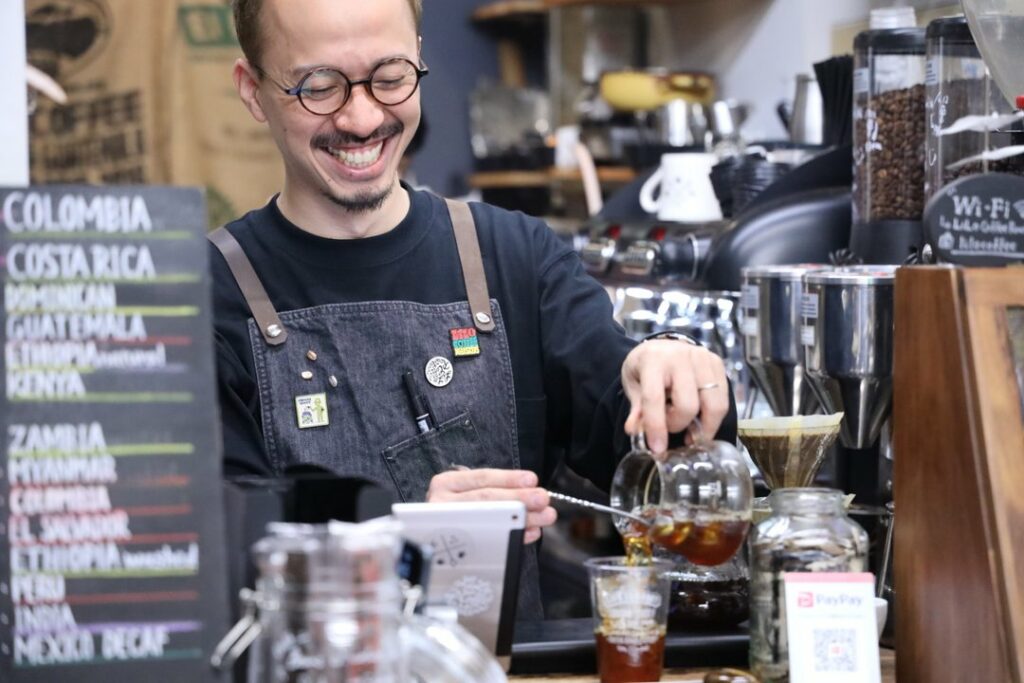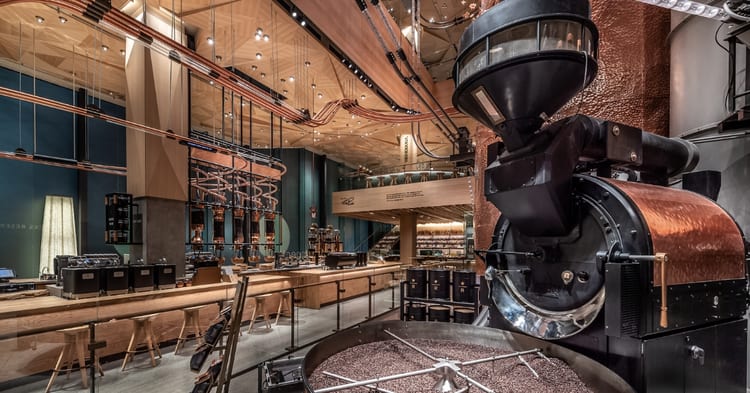Coffee is a widely consumed beverage in Japan and is frequently drank at home, in coffee shops, and at work. Numerous Japanese people choose their coffee black, drip-brewed, or in the form of an espresso-based beverage. Matcha lattes and hojicha lattes are among the distinctive beverages that coffee shops in Japan sell. The “Kh-d” coffee version of the traditional Japanese tea ceremony emphasizes the ritual and appreciation of coffee. Overall, coffee plays a significant role in Japanese society, which places a high emphasis on excellence and attention to detail.
How Japanese people drink coffee
ROBUSTA : Robusta beans are used to make this robusta coffee, which is powerful and darkly roasted. Condensed milk and sugar are frequently added to the serving.
POUR OVER: Using this technique, hot water is carefully poured over coffee grounds to create a rich, flavorful beverage.
Iced coffee: Made with cold or room temperature water, ice cubes, and freshly brewed coffee, iced coffee is a popular summer beverage in Japan
Latte: Espresso and steamed milk are used to make this creamy, smooth-tasting coffee, which is a favorite in Japan.
Matcha latte: A distinctive blend of milk, sugar, and matcha green tea powder, this coffee is a favorite in Japan due to its earthy, nutty flavor.
Mocha: For those who want a sweet and creamy coffee, mocha, which is created with espresso, steamed milk, and chocolate syrup, is a popular option.
Blended coffee: Coffee, milk, and ice are combined to make blended coffee, a smooth and creamy bever
Siphon coffee: Siphon coffee is a brewing technique that use a vacuum system to extract the coffee. It is well-liked in Japan due to the coffee’s rich flavor.

Over the years, a vibrant coffee culture has grown in Japan. When the first coffee shops appeared in Tokyo in the late 1800s, the custom got its beginnings. Nowadays, coffee shops play a crucial role in Japanese culture, acting as gathering places where people may unwind and enjoy a cup of coffee. The emphasis on quality and attention to detail is one of the distinctive features of the Japanese coffee tradition. Every step, from the selection of the coffee beans to the brewing procedure, is meticulously thought out to guarantee the best flavor and experience. Japanese people consider coffee to be an art form as well as a beverage, and baristas take great pride in their expertise.Utilizing special tools is a significant part of the Japanese coffee heritage. The equipment utilized in Japan differs from that which is often used in other nations, from manual coffee grinders to the classic Japanese coffee dripper. This enables a special brewing method that yields a cup of coffee that is rich, flavorful, and smooth. Last but not least, the Japanese coffee culture is renowned for its calm and laid-back atmosphere. Japanese coffee shops are frequently modest in size, quiet, and basic in style, providing patrons with a tranquil and relaxing atmosphere. The tradition of Japanese coffee is a blend of quality, craftsmanship, and culture and plays a key role in the lifestyle and culture of the nation.
Impact On The JAPANESE Coffee Economy
Japanese coffee is a booming industry, with domestic and foreign businesses all contributing to its expansion. With an increase in specialty coffee shops and roasters, Japan has recently emerged as a global center for the beverage. As a result, there is a rise in coffee tourism and a demand for premium coffee beans.A robust coffee culture, with many Japanese people regarding coffee as a daily staple, also supports the coffee industry in Japan. Around $10 billion is currently the estimated market size for coffee in Japan, and growth is anticipated over the next few years. The demand for packaged coffee products, such as instant coffee and coffee capsules, as well as a growing tendency for coffee-related products, such as coffee makers and coffee accessories, have both increased in the coffee market of Japan. It can be said that in Japan coffee sector is a booming one with a strong coffee culture and a need for high-quality goods. It provides excellent potential for both domestic and foreign players, and growth is anticipated to continue in the upcoming years.


